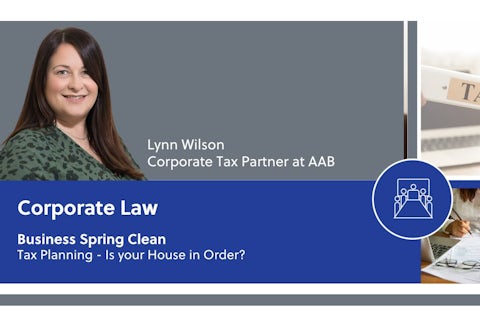When Amazon founder Jeff Bezos’s divorce from his wife MacKenzie was finalised last year, it resulted in a settlement of $35 billion, making her the world’s fourth richest woman – and giving her a separate 4% stake in the online shopping giant.
The figures involved were, of course, colossal and unprecedented but illustrated what can ensue when a couple who both have interests in a company separate.
There are often significant complexities in high-value matters involving family-owned companies and partnerships, often with an international element. Pre-emptive arrangements can help to avert the need for adversarial legal encounters in the event that a relationship breaks down.
Key to this is ensuring that the client and the business adviser understand what constitutes a matrimonial asset, which is especially important where there is a company or partnership involved – and make sure there are no grey areas.
What’s in the pot?
Essentially anything acquired prior to marriage is not a matrimonial asset so if a partnership was put in place prior to marriage and if it retains the same name and there has been no restructuring, a lawyer acting for a spouse who is not a partner in the partnership might look at the partnership accounts to ascertain whether there is any value in the partnership that could be deemed to be matrimonial property.
Any changes to the structure of a business, however, can change the situation significantly. If a married business owner starts a business by himself before the marriage, the business interest will not fall into the matrimonial pot – but if he then goes on to incorporate the firm it becomes a matrimonial asset that will be available for sharing with the other spouse if the couple later separate.
Issues also arise where a company is restructured during the marriage. One example I have seen of this related to a very large international company which had started off as a family owned business. The husband had, as the result of business advice given, sold back some of his shares and was issued with shares in a newly created subsidiary of the company.
The original shares – which were worth several million pounds – were all acquired prior to marriage and therefore were not matrimonial property. However, as soon as he acquired shares in the new part of the company during his marriage those shares became matrimonial property and accordingly several million pounds fell into the matrimonial pot which would not have happened if the husband had just kept the original shares.
The consequences of change
The company may have been given very good corporate and tax advice in helping to restructure the business and the business owner was clearly financially astute, but there was still a lack of awareness of the potential consequences in the event that a relationship breaks down at some point in the future.
At the time that a company is restructured the parties might be very happily married and a separation is probably the furthest thing from their thoughts – and from their families’ thoughts.
However, although separation is a difficult thing to consider it’s also very important. We would stress to advisers who are dealing with a business restructuring that they should flag up and make their clients aware that restructuring could have consequences in the event of separation.
Separately there may also be situations in which a spouse may be an employee of the company. Often this is done where the spouse, in reality, plays little or no part in the company but receives a salary under the nil rate band for income tax purposes. Following a separation the other spouse may attempt to remove them from the payroll, potentially resulting in an unfair dismissal claim. Or the spouse who has been made an employee may argue that they have made a significant contribution to the success of the business and thus should share in its value, even if it was set up before the marriage.
Sensible precautions
These are both examples which could have been avoided by a pre- or post-nuptial agreement. Discussing and establishing what is – or what might potentially become – part of the joint matrimonial assets is a valuable part of the process when making a pre- or post-nuptial agreement. It can cover a wide range of scenarios and not just those relating to business interests.
If you find yourself advising a client on a business start-up or any form of restructuring and want to know more about the potential consequences of a separation then get in touch.








